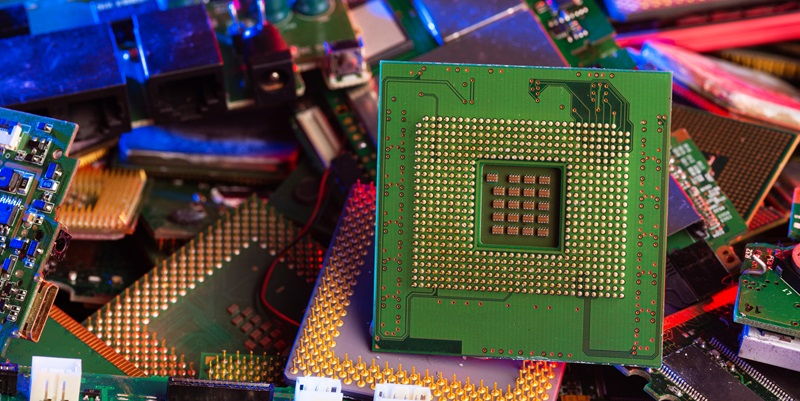AMD, the renowned semiconductor giant, continues to set its sights on technological advancement with the confirmed release of its highly anticipated Zen 5 CPUs. During a recent investor call, AMD provided further insight into its plans, shedding light on its commitment to a two-year cadence for its Zen architecture.
Zen 5 CPU Release
Addressing the eagerly awaited launch of Zen 5, AMD has announced its decision to unveil new Epyc CPUs constructed using the Zen 5 architecture later this year. This announcement is a breakthrough for the tech industry and hints at remarkable enhancements that will raise the bar for computing capabilities. Speculation arises regarding the actual release timeline, drawing comparisons to the Zen 4 rollout.
AMD’s Leadership in AI for PCs
Dr. Lisa Su, CEO of AMD, reiterated the company’s ambition to extend its leadership in AI PC technology with the forthcoming Zen 5 CPUs. The next wave of Zen 5 CPUs is touted to revolutionize this domain with advanced AI hardware, reflecting AMD’s commitment to staying at the forefront of artificial intelligence.
Debunking Rumors
Putting an end to the grapevine, an AMD representative on the investor call clarified that circumstances will not align with the rumored April release date for Zen 5, quelling anticipation. Instead, the launch strategy is likely to mirror the Zen 4 rollout, building excitement as the top-tier Ryzen CPUs hit the market in September, followed by the introduction of X3D chips at CES.
Rollout Details
Enthusiasts eagerly await an insider’s glimpse into the exact launch schedule for the Zen 5 CPUs. Based on previous iterations, it is anticipated that the high-performance Ryzen CPUs will make their grand entrance in September, positioning them as the ultimate choice for power users. Following this, AMD plans to introduce the innovative X3D chips, demonstrating their commitment to catering to a broad range of computing needs.
Zen 5 – Desktop, Mobile, or Both?
While details remain scarce, the critical question surrounding the Zen 5 rollout centers on whether it will encompass desktop or mobile platforms, or perhaps both. On the investor call, Lisa Su tantalizingly mentioned Zen 5 mobile, code-named Strix Point, which will integrate boosted Radeon graphics and cutting-edge AI hardware. This hints at a mobile landscape dominated by AMD’s Zen 5 prowess.
Gaming Revenue and GPU Updates
Although specifics about RDNA 4 GPUs were not disclosed during the call, Lisa Su highlighted the gaming division’s overall robust revenue performance throughout the year. This revenue growth was fueled by strong sales of AMD’s popular 6000 and 7000 series GPUs. These graphics cards continue to captivate gamers with their exceptional performance and immersive experiences.
TSMC Node for Zen 5
One of the remaining unanswered questions revolves around the TSMC node that AMD will employ for Zen 5 CPUs. The exact choice between a 4nm or 3nm node remains uncertain, evoking intense speculation within the tech community. Each node option brings unique advantages, including improved power efficiency and enhanced performance, further enhancing the intrigue surrounding AMD’s Zen 5 innovation.
AMD’s confirmation of the impending Zen 5 CPU launch sets the stage for a transformative era in computing. Operating on a two-year cadence, AMD continues to push boundaries with its Zen architecture. Zen 5 is primed to redefine the AI PC landscape, with advanced AI hardware and boosted Radeon graphics in the mobile arena. While details about the Zen 5 rollout and TSMC node choice are yet to be unveiled, anticipation remains high among enthusiasts eagerly awaiting AMD’s next wave of cutting-edge technology.

